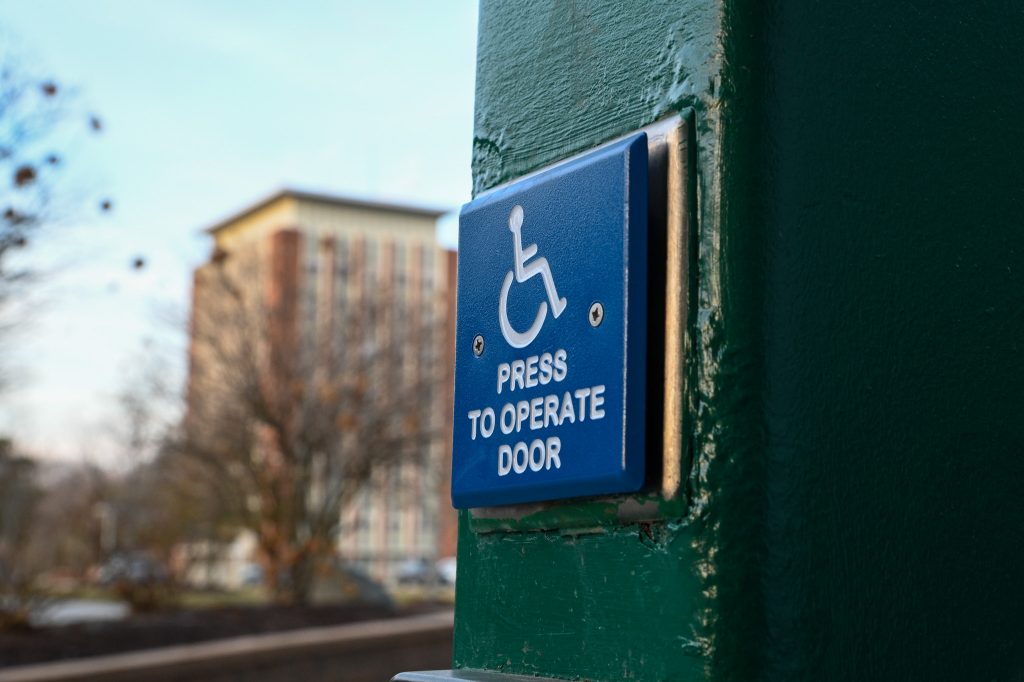A new bill was passed to improve accessibility for disabled students on campus in a recent Student Association (SA) Congress meeting.
On March 14, the SA Congress voted to pass the implementation of the On-Campus Accessibility Reporting System Bill. If heeded by the University, the bill will provide students with a way to suggest improvements to Physical Facilities through an online form. The bill was written with disabled students in mind, so that inaccessible conditions such as broken elevators, ramps or door buttons could be reported and fixed more efficiently.
Luca Cassidy, an SA Congress member who worked on this bill and a sophomore majoring in economics, described an interaction that moved him to look into the issue of on-campus accessibility.
“At a meeting on [the] Binghamton [University] campus with the Chancellor of the SUNY System, [John B. King, Jr.], and student leaders, a student noted that most of the disability buttons did not work and joked that, ‘If you’re disabled, you shouldn’t come to [BU].” Cassidy wrote in an email. ”Afterward, some students noted that this was an informal joke to make, but I remember thinking, ‘But he’s right.’ This joke is what inspired me to investigate the issue.”
The new reporting system will be introduced after spring break. Sophia Yazdi, an SA Congress member who was involved with drafting the bill and a freshman majoring in economics, explained how the rollout of this new reporting system will work.
“To start, QR codes would be placed on doors in the [University] Union as a pilot program,” Yazdi wrote in an email. “Based on this initial implementation, we will be able to assess what is working properly, what could be improved and how students are responding to the system of reporting. Several working ideas for work orders to be submitted to Physical Facilities include via email, an app on students’ phones or a link to the work order portal.”
The new version of the Americans with Disabilities Act (ADA), which was updated in 2010, included new “Standards for Accessible Design,” which mandated that all new construction in both public and private schools and universities remove barriers to accessibility by installing ramps, making curb cuts and arranging furniture so that people who use mobility aids can easily pass through public spaces. Door buttons are a part of these requirements, with the ADA National Network stating that, “At least 60 percent of public entrances in newly built facilities must be accessible to individuals who use wheelchairs or have mobility impairments.”
SA Congress members drafted the bill in collaboration with Services for Students with Disabilities (SSD) and the newly formed Disabled Students Union (DSU). The DSU was created to “offer a space for community, discuss current issues and advocate for improvements on the [University] campus,” according to its Instagram account.
Selina Chan, a freshman majoring in mathematics, described some issues she has had with the door buttons, particularly those inside the University Union.
“Some of the door buttons don’t work and don’t keep the doors open for long enough,” Chan said in an interview. “I struggle using them sometimes, and I would imagine that if you use a mobility aid these maintenance issues would make it much harder to move around campus.”
Plans are currently in place to discuss this bill with other student groups and offices on campus, including the BU Council. Yazdi explained why she feels accessibility is important in higher education.
“Advocating for students through SUNY SA led me to think more about accessibility on campus, and in tandem with hearing from students at [BU] about a lack of physical accessibility, I was inspired to draft a bill to increase student input on accessibility features on campus,” Yazdi wrote. “All students should have equal access to opportunities and places on campus, and it is important that the University ensure that the needs of all students are taken into account to promote student success.”



